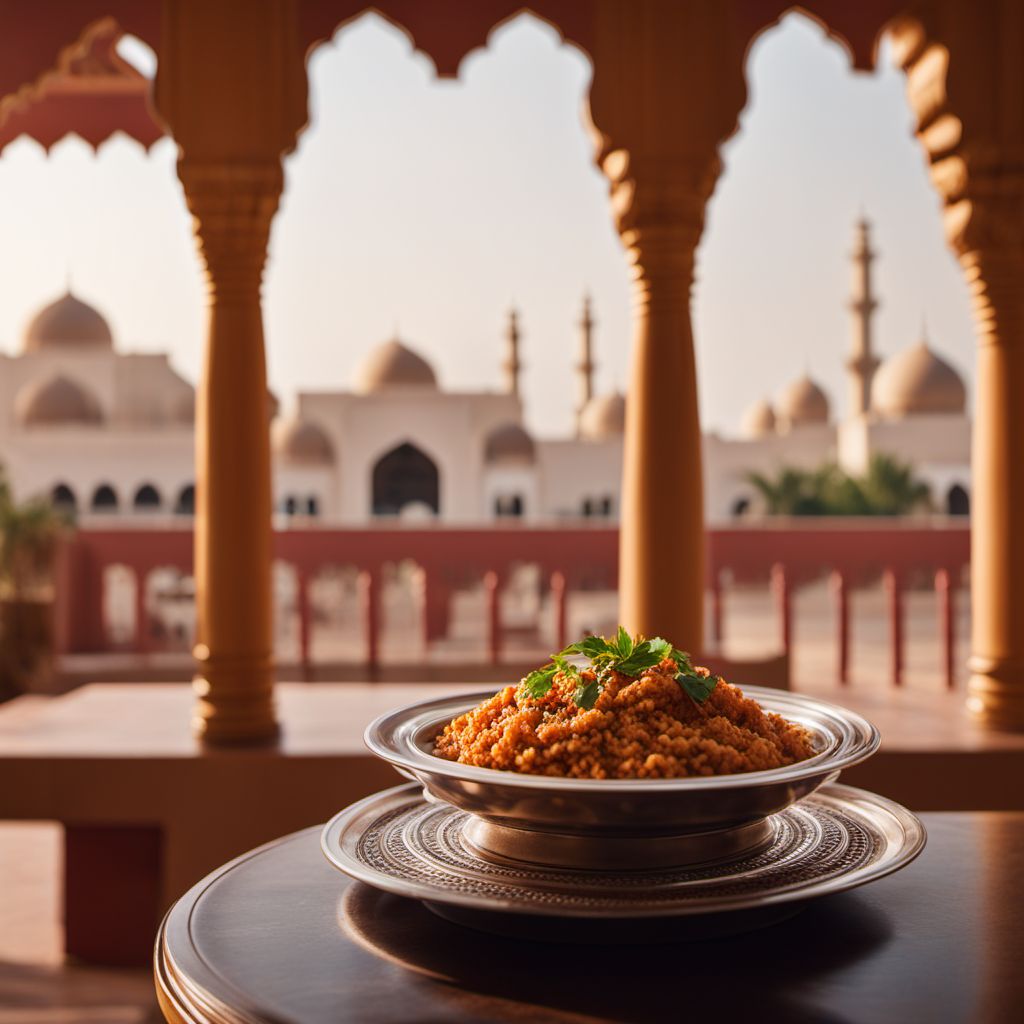
Cuisine
Omani cuisine
Omani cuisine is characterized by its use of spices, herbs, and marinades. The cuisine features a variety of meats, including lamb, chicken, and fish, as well as rice and breads. Omani cuisine also features a variety of desserts, including halwa and dates.
Typical ingredients
Lamb, Chicken, Fish, Rice, Bread, Saffron, Cardamom, Cinnamon, Ginger, Garlic, Turmeric, Cumin, Coriander, Fenugreek, Dates, Honey, Rosewater, Almonds, Pistachios
Omani cuisine is known for its use of marinades and spices, which are believed to have medicinal properties. Many traditional Omani dishes are also believed to have aphrodisiac properties.
More cuisines from this region...
Qatari cuisine, Saudi Arabian cuisine, Emirati cuisine, Kuwaiti cuisine, Yemeni cuisine, Bahraini cuisine
History
Omani cuisine has a long history dating back to ancient times. The cuisine has been influenced by various cultures and civilizations, including the Persians, Portuguese, and British. Omani cuisine has also been influenced by the country's location on the Arabian Sea, which has led to the use of seafood in many dishes. In recent years, Omani cuisine has become more diverse, with the introduction of new ingredients and cooking techniques.
Cultural significance
Food is an important part of Omani culture and is often served in large quantities to show hospitality. Traditional Omani meals are often served on a large communal platter, with guests using bread to scoop up the food. Coffee is also an important part of Omani culture and is often served with dates as a sign of hospitality.
Health benefits and considerations
Omani cuisine is generally high in fat and calories, due to the use of oils and meats. However, the cuisine also features a variety of healthy ingredients, such as fish, vegetables, and herbs. Some traditional Omani dishes, such as shuwa and harees, are high in sodium due to the use of salt and spices.
Omani cuisine dishes
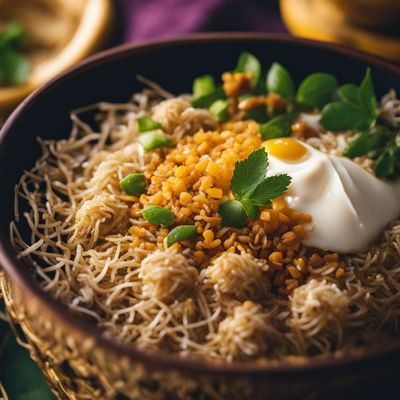
Balaleet
Balaleet is a traditional Emirati dish made with vermicelli noodles. It is a sweet and savory dish that is perfect for breakfast or dessert. The dish is easy to make and can be...

Shuwa
Spiced lamb
Shuwa is a traditional Emirati dish made with slow-cooked lamb that is marinated in spices and wrapped in banana leaves. It is a flavorful and tender dish that is perfect for...
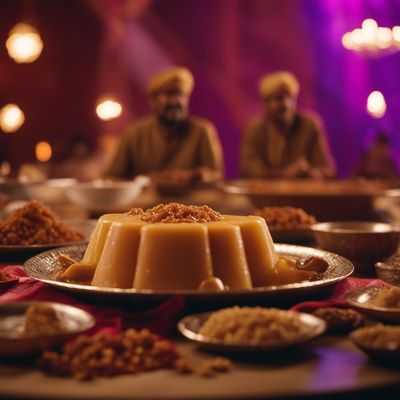
Omani halwa
Omani Halwa
Omani halwa is a traditional sweet from Oman made with sugar, cornstarch, and ghee. It has a sticky, chewy texture and a sweet, nutty flavor.
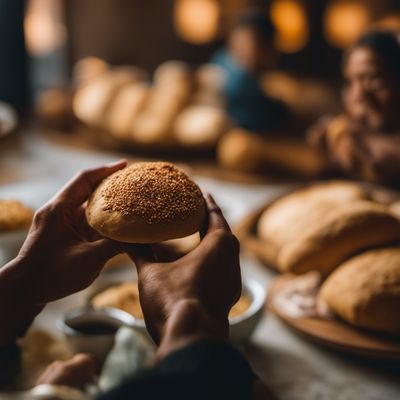
Khetayee
Khetayee is a traditional Yemeni bread that is often served with savory dishes. It is a soft, fluffy bread that is flavored with nigella seeds and is perfect for soaking up...
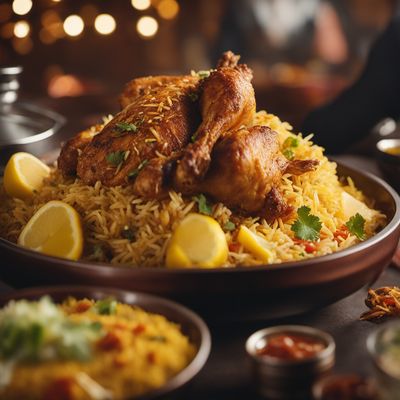
Omani Chicken Biryani
Omani chicken biryani
Omani Chicken Biryani is a traditional Omani dish that is made with chicken, rice, and a variety of spices.

Mashuai
Spit-Roasted Fish
Mashuai is a traditional Omani dish that is made with grilled kingfish and spiced rice. It is a flavorful and aromatic dish that is often served at special occasions.
Omani cuisine recipes Browse all »
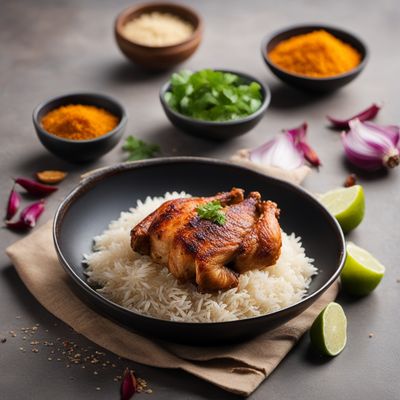
Omani Spiced Chicken with Fragrant Rice
Sultan's Delight: Aromatic Omani Spiced Chicken with Fragrant Rice
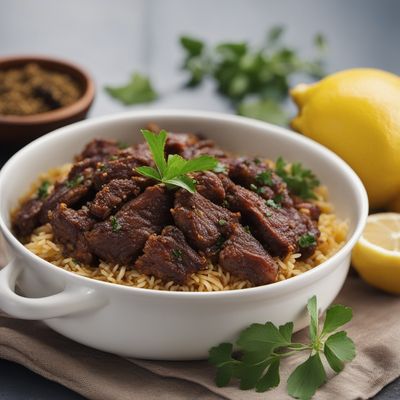
Omani Spiced Lamb Shuwa
Slow-Roasted Omani Lamb Delight
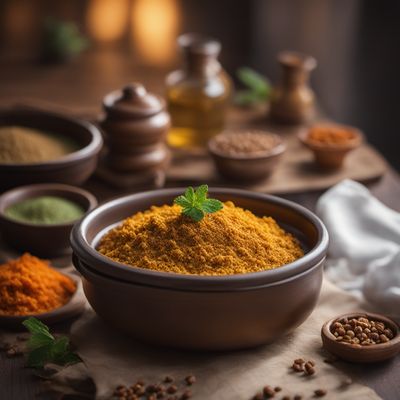
Omani-style Pogača
Savory Omani Bread Delight
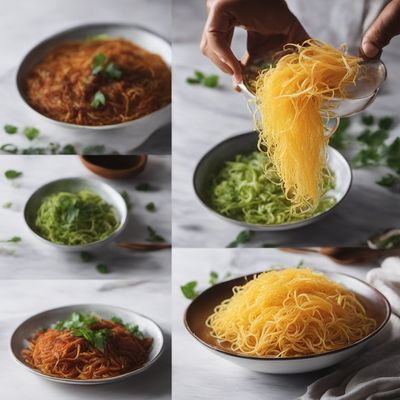
Omani Sweet Vermicelli (Balaleet)
Arabian Delight: Omani Sweet Vermicelli (Balaleet)
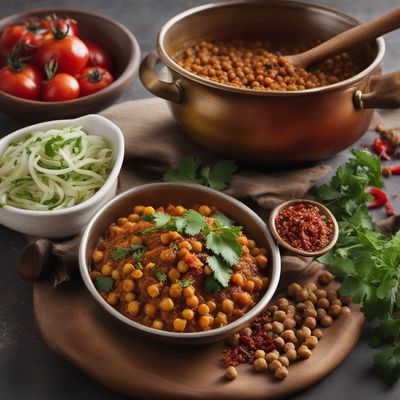
Omani-inspired Topoi with Spiced Lamb
Savory Omani Lamb and Chickpea Stew
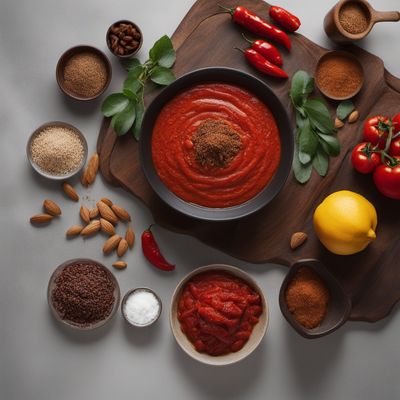
Omani-style Xató Sauce
Spicy and Tangy Omani Xató Sauce: A Fusion of Flavors

Omani-style Spiced Chicken with Rice
Zesty Omani Chicken Pilaf: A Fusion of Flavors
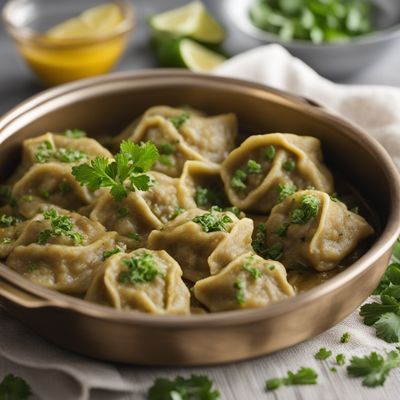
Omani-style Stuffed Dumplings
Savory Delights from Oman: Omani-style Stuffed Dumplings

Omani Style Sweet Biscuits
Delicious Omani Sweet Biscuits: A Taste of Tradition
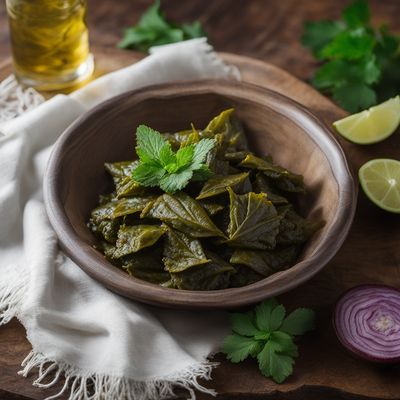
Omani-style Stuffed Grape Leaves
Savory Delights: Omani-inspired Stuffed Grape Leaves
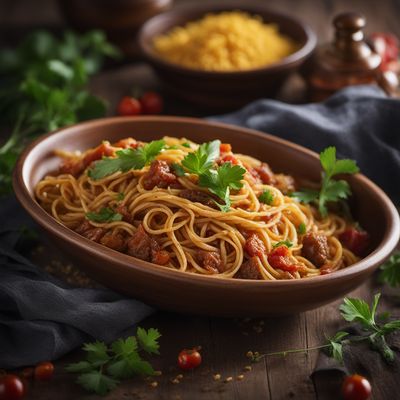
Omani-style Fregnacce alla Reatina
Spiced Omani Pasta Delight
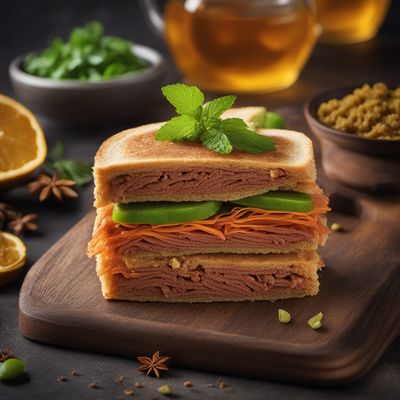
Omani Special Sandwich
Savory Omani Delight: A Fusion of Flavors in a Sandwich